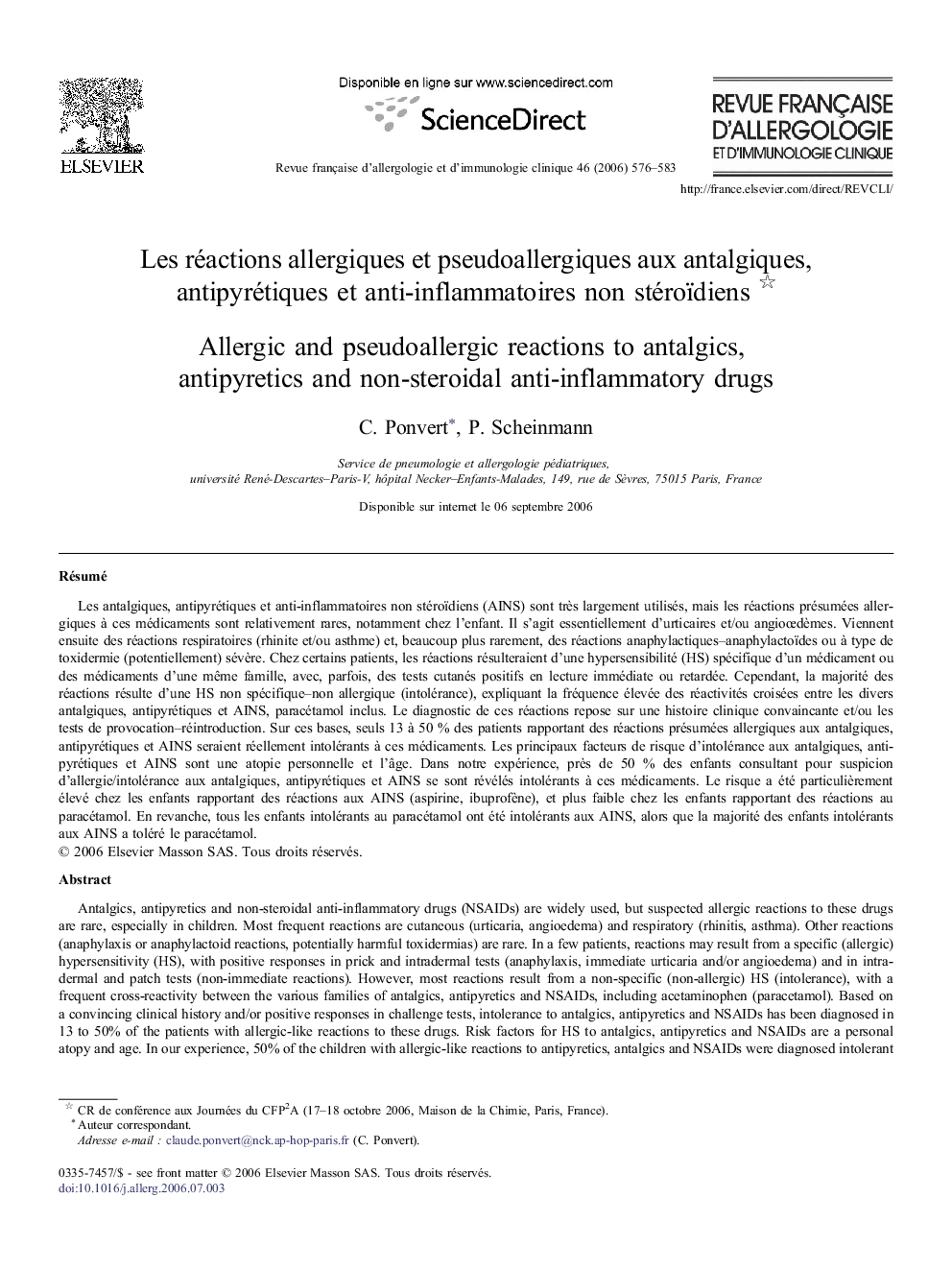| کد مقاله | کد نشریه | سال انتشار | مقاله انگلیسی | نسخه تمام متن |
|---|---|---|---|---|
| 2770483 | 1151442 | 2006 | 8 صفحه PDF | دانلود رایگان |
عنوان انگلیسی مقاله ISI
Les réactions allergiques et pseudoallergiques aux antalgiques, antipyrétiques et anti-inflammatoires non stéroïdiens
دانلود مقاله + سفارش ترجمه
دانلود مقاله ISI انگلیسی
رایگان برای ایرانیان
کلمات کلیدی
Antipyretics - antipyreticsDrug hypersensitivity - حساسیت به مواد مخدرHypersensibilité médicamenteuse - حساسیت به مواد مخدرNon-steroidal anti-inflammatory drugs - داروهای ضد التهابی غیر استروئیدیanti-inflammatoires non stéroïdiens - داروهای ضد التهابی غیر استروئیدیAntalgiques - مسکنChild - کودکEnfant - کودک
موضوعات مرتبط
علوم پزشکی و سلامت
پزشکی و دندانپزشکی
بیهوشی و پزشکی درد
پیش نمایش صفحه اول مقاله

چکیده انگلیسی
Antalgics, antipyretics and non-steroidal anti-inflammatory drugs (NSAIDs) are widely used, but suspected allergic reactions to these drugs are rare, especially in children. Most frequent reactions are cutaneous (urticaria, angioedema) and respiratory (rhinitis, asthma). Other reactions (anaphylaxis or anaphylactoid reactions, potentially harmful toxidermias) are rare. In a few patients, reactions may result from a specific (allergic) hypersensitivity (HS), with positive responses in prick and intradermal tests (anaphylaxis, immediate urticaria and/or angioedema) and in intradermal and patch tests (non-immediate reactions). However, most reactions result from a non-specific (non-allergic) HS (intolerance), with a frequent cross-reactivity between the various families of antalgics, antipyretics and NSAIDs, including acetaminophen (paracetamol). Based on a convincing clinical history and/or positive responses in challenge tests, intolerance to antalgics, antipyretics and NSAIDs has been diagnosed in 13 to 50% of the patients with allergic-like reactions to these drugs. Risk factors for HS to antalgics, antipyretics and NSAIDs are a personal atopy and age. In our experience, 50% of the children with allergic-like reactions to antipyretics, antalgics and NSAIDs were diagnosed intolerant to these drugs. Risk was high in children reporting reactions to NSAIDs (aspirin, ibuprofen) and lower in children reporting reactions to paracetamol. All the children intolerant to paracetamol were also intolerant to NSAIDs. In contrast, most children with NSAID intolerance were tolerant to paracetamol. A personal history of atopy and a mean age â¥Â 8 years were significant risk factors for intolerance to antalgics, antipyretics and NSAIDs.
ناشر
Database: Elsevier - ScienceDirect (ساینس دایرکت)
Journal: Revue Française d'Allergologie et d'Immunologie Clinique - Volume 46, Issue 6, October 2006, Pages 576-583
Journal: Revue Française d'Allergologie et d'Immunologie Clinique - Volume 46, Issue 6, October 2006, Pages 576-583
نویسندگان
C. Ponvert, P. Scheinmann,